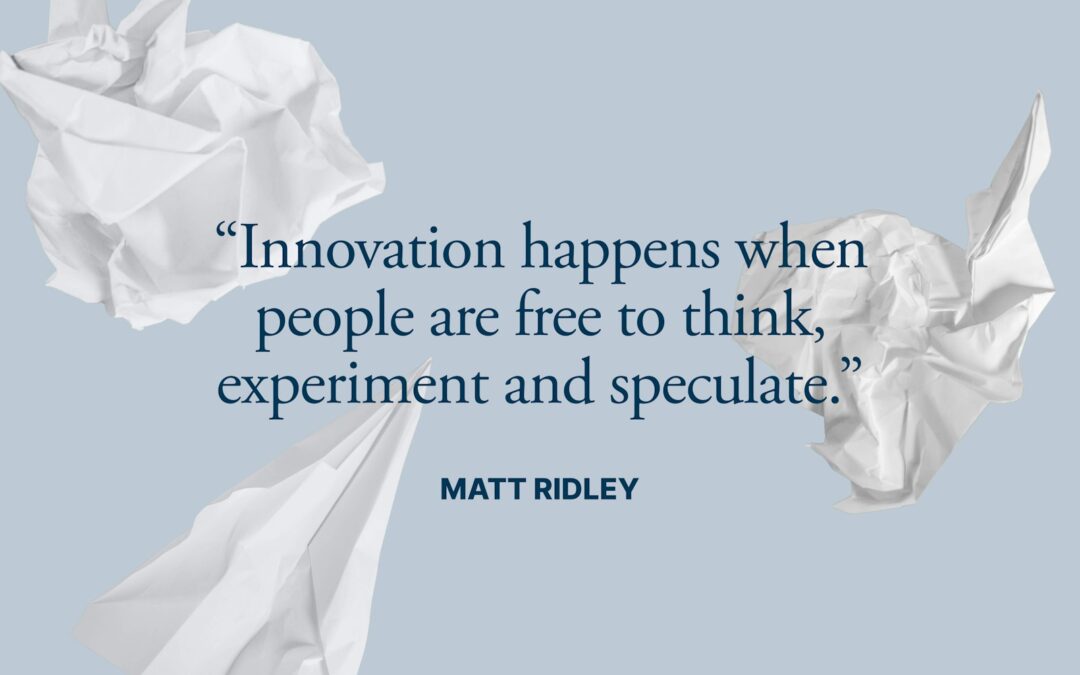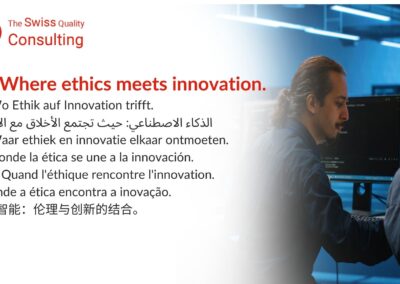Ensuring Safe and Ethical Advancements in the Digital Era
Understanding Privacy Risks in Technological Innovation
The risks of technological innovation for privacy have become a critical concern as advancements in artificial intelligence (AI), blockchain, the metaverse, and generative AI continue to reshape the digital landscape. While these technologies offer tremendous benefits, they also pose significant threats to individual privacy. In regions like Saudi Arabia and the UAE, where rapid technological adoption is a priority, understanding and mitigating these privacy risks is essential for fostering trust and ensuring ethical development.
One of the primary privacy risks associated with technological innovation is data collection and surveillance. AI systems, for instance, often rely on vast amounts of personal data to function effectively. This data collection can include sensitive information such as location data, browsing habits, and even biometric data. In urban centers like Riyadh and Dubai, where smart city initiatives are being implemented, the potential for surveillance and data misuse is particularly high. Ensuring that data collection practices are transparent and consent-based is crucial for protecting individual privacy.
Blockchain technology, while known for its security and transparency, also presents privacy challenges. The immutable nature of blockchain means that once data is recorded, it cannot be altered or deleted. This permanence can be problematic when it involves personal data, as individuals may lose control over their information. Additionally, while blockchain transactions are pseudonymous, they are not entirely anonymous, potentially allowing for the tracking of individuals’ activities. Effective privacy measures, such as zero-knowledge proofs, must be incorporated to address these concerns.
The metaverse and generative AI introduce new dimensions to privacy risks. In the metaverse, users interact in virtual environments that collect and process vast amounts of personal data, including behavioral data and interaction patterns. Generative AI, capable of creating realistic content, can be misused to generate deepfakes and other manipulative content, compromising individuals’ privacy and reputation. As these technologies become more integrated into daily life, it is imperative to establish robust ethical guidelines and regulatory frameworks to safeguard privacy.
Implementing Ethical Guidelines to Mitigate Privacy Risks
To address the risks of technological innovation for privacy, it is essential to implement comprehensive ethical guidelines. These guidelines should serve as a foundation for responsible technology development and deployment, ensuring that privacy considerations are prioritized at every stage. In Saudi Arabia and the UAE, where technology plays a pivotal role in economic and social development, adopting such guidelines is crucial for maintaining public trust and fostering sustainable growth.
One key aspect of ethical guidelines is the principle of privacy by design. This approach involves integrating privacy protections into the design and architecture of technological systems from the outset. By considering privacy implications during the development phase, organizations can proactively identify and mitigate potential risks. For instance, AI systems can be designed to minimize data collection, use anonymization techniques, and ensure data security. In cities like Riyadh and Dubai, where smart city projects are prevalent, incorporating privacy by design can significantly enhance the overall security and trustworthiness of digital infrastructures.
Transparency and accountability are also fundamental components of ethical guidelines. Organizations must be transparent about their data collection practices, clearly informing users about what data is being collected, how it is being used, and with whom it is being shared. Providing users with control over their data, such as the ability to access, modify, and delete their information, is essential for ensuring their privacy rights. Additionally, establishing accountability mechanisms, such as regular audits and compliance checks, can help organizations adhere to privacy standards and address any breaches promptly.
Furthermore, ethical guidelines should promote the use of advanced privacy-enhancing technologies. Techniques such as differential privacy, federated learning, and homomorphic encryption can help protect individual privacy while enabling the effective use of data. Differential privacy, for example, allows organizations to analyze data and extract insights without compromising the privacy of individuals. Federated learning enables AI models to be trained across decentralized devices without sharing raw data, preserving data privacy. By adopting these technologies, organizations in Saudi Arabia and the UAE can ensure that their innovations respect and protect user privacy.
Regulatory Measures for Privacy Protection
In addition to ethical guidelines, implementing robust regulatory measures is crucial for managing the risks of technological innovation for privacy. Regulatory frameworks provide a legal basis for enforcing privacy protections and holding organizations accountable for their practices. Governments and regulatory bodies in Saudi Arabia and the UAE must establish clear and comprehensive privacy regulations that address the unique challenges posed by emerging technologies.
Data protection laws are a fundamental component of regulatory measures. These laws should outline the rights of individuals regarding their personal data, establish obligations for organizations that process data, and define penalties for non-compliance. For instance, regulations similar to the European Union’s General Data Protection Regulation (GDPR) can be implemented to ensure that individuals have control over their data and that organizations handle data responsibly. In regions like Riyadh and Dubai, where digital transformation is rapidly advancing, robust data protection laws are essential for maintaining public trust.
Regulatory measures should also include guidelines for the ethical use of AI and other emerging technologies. This can involve establishing standards for AI transparency, fairness, and accountability. For example, AI systems should be required to undergo regular assessments to ensure they do not exhibit biased or discriminatory behavior. Additionally, organizations should be mandated to provide explanations for AI-driven decisions, enabling users to understand how their data is being used. By implementing these standards, regulators can ensure that technological innovations align with societal values and ethical principles.
Moreover, international cooperation is vital for effective privacy regulation. Technological innovations often transcend national borders, necessitating a coordinated approach to privacy protection. Governments and regulatory bodies in Saudi Arabia and the UAE should collaborate with international organizations and other countries to harmonize privacy standards and share best practices. This cooperation can enhance the effectiveness of privacy regulations and ensure that technological advancements benefit all members of the global community.
Leadership and Management in Privacy Protection
Effective leadership and management are essential for addressing the risks of technological innovation for privacy. Business executives, mid-level managers, and entrepreneurs in Saudi Arabia, the UAE, and beyond must prioritize privacy protection within their organizations. This involves fostering a culture of privacy awareness, ensuring compliance with ethical guidelines and regulations, and implementing robust privacy practices.
Leadership skills such as strategic planning, risk assessment, and change management are crucial for navigating the complexities of privacy protection. Managers must develop comprehensive privacy strategies that align with organizational goals and regulatory requirements. This includes conducting privacy impact assessments, setting measurable goals for privacy protection, and regularly reviewing and updating privacy practices to address emerging risks.
Collaboration and stakeholder engagement are also important aspects of effective privacy management. Business leaders must work closely with technology providers, regulatory bodies, and community organizations to develop and implement best practices for privacy protection. This involves participating in industry forums, sharing knowledge and insights, and advocating for policies and regulations that promote responsible technology use. In regions like Riyadh and Dubai, where technological innovation is a driving force, fostering such partnerships can significantly enhance privacy protection.
Conclusion: Building a Privacy-Respecting Digital Future
The risks of technological innovation for privacy present significant challenges, but they can be effectively managed through the implementation of ethical guidelines and robust regulatory measures. By prioritizing privacy by design, promoting transparency and accountability, and adopting advanced privacy-enhancing technologies, organizations can ensure that their innovations respect and protect individual privacy. In regions like Saudi Arabia and the UAE, where technological advancements are rapidly transforming society, addressing privacy risks is essential for maintaining public trust and fostering sustainable growth.
In conclusion, effective leadership and strategic management are crucial for navigating the complexities of privacy protection in the digital era. By integrating ethical considerations into every stage of technology development and fostering a culture of privacy awareness, business leaders can create a privacy-respecting digital future that benefits all members of society. As we continue to embrace technological innovations, prioritizing privacy protection will be key to building a resilient and trustworthy digital ecosystem.
—
#RisksofTechnologicalInnovationforPrivacy #TechnologicalInnovation #PrivacyRisks #EthicalGuidelines #TechnologyRegulations #ArtificialIntelligence #Blockchain #TheMetaverse #GenerativeAI #ModernTechnology #BusinessSuccess #Leadership #ManagementSkills #ProjectManagement #SaudiArabia #UAE #Riyadh #Dubai























